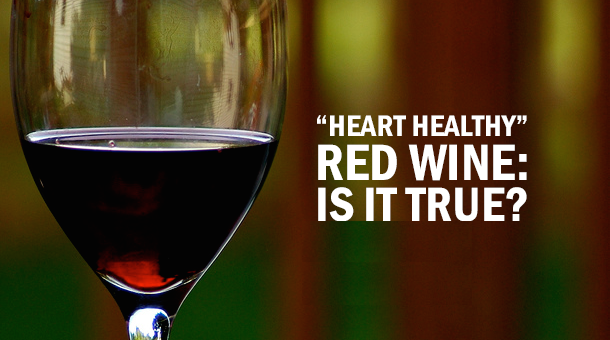![]() Thousands of years ago, around 1015 BC, Psalms 104:14-15 proclaimed: “You cause the grass to grow for the livestock and plants for man to cultivate, that he may bring forth food from the earth, and wine to gladden the heart of man, oil to make his face shine and bread to strengthen a man’s heart.”
Thousands of years ago, around 1015 BC, Psalms 104:14-15 proclaimed: “You cause the grass to grow for the livestock and plants for man to cultivate, that he may bring forth food from the earth, and wine to gladden the heart of man, oil to make his face shine and bread to strengthen a man’s heart.”
As with most ancient scriptures, their wisdom is divined by the reader’s mind and their secrets are revealed through the reader’s interpretation. And so for the purpose of this discussion I am assuming that “the gladdening of the heart” might simply refer to the heart’s physical vitality and not any other metaphorical symbolisms.
In 2012, an assistant professor and his gradate student at Purdue University published a report about a compound found in red wine called “Picetannol.”  According to their research, this compound interrupted or blocked the cellular processes that allow fat cells to develop. This discovery might very well open the door to controlling obesity, thereby tamping down the ailments associated with it. Yes, it would seem that red wine really is “good for the human heart.”
According to their research, this compound interrupted or blocked the cellular processes that allow fat cells to develop. This discovery might very well open the door to controlling obesity, thereby tamping down the ailments associated with it. Yes, it would seem that red wine really is “good for the human heart.”
It comes as a great surprise, at least to me, that the complexity of chemical compounds found in red wine surpasses that of our own blood serum. It has become increasingly clear that there are health benefits derived from a moderate ingestion of red wine and that these might range from maintaining a healthy heart to possibly mitigating Alzheimer’s disease. Recent research points in that direction. So, much like the secrets divulged by ancient texts, there remain secrets yet to be discovered through scientific research into the nature and qualities possessed by the elixir we call red wine. 
Red wine is a rich source of antioxidants, called flavonoids. Ten years of research has already shown that flavonoids reduce the risk of coronary heart disease. The cardio-protective affects are three fold: Red wine reduces the production of low-density lipoprotein (LDL) cholesterol (the bad stuff) and boosts the good high-density lipoprotein (HDL) thereby reducing blood clotting. Finally, consuming a moderate amount of red wine on a daily basis has been shown to favorably influence lipid profiles following a meal.
Drinking red wine in moderate amounts might help explain why the French, who enjoy a cuisine consisting of rich fatty dishes, do not show the ill effects of their diet because such meals are almost always enjoyed with red wine. One can therefore conclude that red wine, when consumed in moderate amounts, does indeed provide a treasure trove of healthy benefits that we can enjoy everyday. 
As I reflect on red wine, I remember the 1980’s reggae song by UB40 entitled: “Red, Red, Wine” and its chorus” “Red, red, wine, you really know how I love your kind of love like a blessing from above … red-red-wine, I love you right from the start with all of my heart.” And with that, I raise a delightful glass of Cabernet Sauvignon, and toast: “To our good health.”
